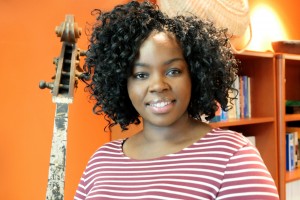A Youth Perspective
It was a really bad storm—one of those high alert, flash-flood warning, get-to-higher-ground type storms. I was five years old, and it was night. As lighting lit up the sky and thunder roared, my brother and I sat in the kitchen eating dinner with my mom. She cracked open a window to get the refreshing smell of rainfall to fill the kitchen. Moments later, my life would change forever.
A lightning bolt struck the black, rubber-lined kitchen table and lit up our entire apartment. The lights went out immediately and there was no power for a mile up and down the street. As my mother rushed us into the living room, I began to vomit in fear. My mom recalls that I didn’t speak afterwards for two days because I was so shaken. That night changed the course of my life forever.
For many years after that experience, any time there was a thunderstorm or signs of a storm on the horizon, I would vomit out of conditioned fear. The only cure was my mom. I had to be in her arms to feel secure. But that changed when I decided I wanted to be free of my fear-driven reactions. When I was thirteen, I walked outside during a hot summer thunderstorm and stood in the pouring rain. I held my hands up and my head followed, as I allowed the warm water to drench my body all the fear left my body. It was the most calming experience I’d had at that point in my life. I embraced my fear instead of continuing to allow it to overtake me. Summer thunderstorms are now what I look forward to in this season—they heal me.
I started with this story because stories matter. Stories have power to change things.
Back in March 2015, MASSCreative hosted #ArtsMatter Advocacy Day, and I attended. At one point in the day, we had a storytelling workshop. The focus was on how to tell the story of ME, then the story of US, then the story of NOW. At first, I didn’t understand. We had gathered at Boston’s Wang Theater and it was packed with people. I ended up sitting next to, and therefore partnered with, the Director of Operations from the Boston Children’s Chorus, Ben Hires. This was cool because I had been in the chorus for many years when I was younger and knew Ben from that time. After going through the workshop, things started to connect for me. As we shifted from the opening and welcome speeches to the day’s advocacy agenda, we learned how to use our personal stories to get people’s attention and connect with them on a deep level. When people HEAR you, they are more willing to trust you and engage in a conversation.
We learned what we used to then march to the Statehouse and meet with our legislators. All of us led with our personal stories rather than requests or facts and figures. We got to those eventually—they’re important, too, but what was different is that we led with stories.
I learned a lot about myself that day. I learned about others and about the vitality that stories carry not only in campaigns and politics, but on a personal and professional level. Stories allow for walls to be broken down, help us discover likes and dislikes, similarities and differences. They remind us that we are people.
I could not wait to share what I learned about story back at school. At UMass, I led a session with some of my fellow students from the Harambee, a defined residential living community that focuses on the culture and heritage of the African Diaspora, and started with storytelling. It changed things. After telling stories, people were more open and engaged because they had shared something about their personal journal and history. It changed that way we viewed each other. Considering that all 65 of us would be living together, it was very important that we begin to get to know each other well, develop trust, and engage with each other.
So now, we will start the year off strong because of the stories we shared. It can work anywhere: friends, acquaintances, donors, legislators.
When we share our stories, we build bonds, trust, and relationships that go far beyond normal day-to-day conversation. We are able to advocate for others and have a deeper connection and understanding of who they are.
The word “advocate” is defined as: (n.) A person who speaks or writes in support or defense of a person or cause. (v.) To or write in favor of. It comes from “vocare,” which means “to call” and is related to “vocem,” which means “voice.” Never be afraid, intimidated, or uncertain about sharing your voice, speaking up, and telling your story. It’s your truth and your experience and you never know who you will connect with, the inspiration you’ll be, or the change that you ignite through your advocacy.
Lessons Learned:
- Share your story!
- Your story is very important, but remember to listen to others’, too.
- Be ready and willing to advocate for others. Speak up!
